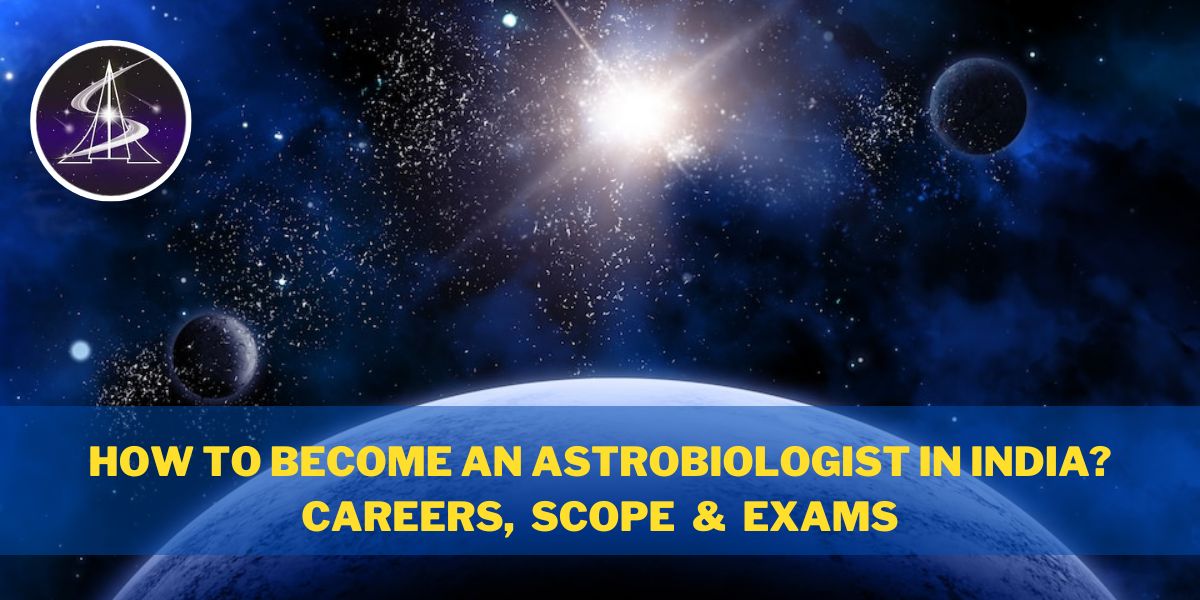What is astrobiology?
The study of life in the cosmos is known as astrobiology. Understanding life, the nature of the environments that support it, the planetary systems, stellar interactions and processes, are necessary for the search for life beyond Earth. Astrobiology integrates concepts and methods from various disciplines, including astronomy, biology, chemistry, geology, atmospheric science, oceanography, and aeronautical engineering.
Scope:-
Compared to the more established fields of astronomy, geology, and planetary sciences, astrobiology in India is a growing field, but it offers a stable and promising career path. Astrobiology research largely determines how institutions like NASA and ISRO plan for upcoming space missions.
Astrobiology is a new research area, and opportunities in this field are gradually and steadily growing in India. It is an evolving course that offers you a diverse range of research topics. Overall, it is a fascinating career path for those interested in space and its philosophies. After completing Astrobiology courses in India, one can work in both private and government-funded institutions, or even pursue a career in education.
Astrobiology Colleges in India:-
Because this field is still relatively new in India, there aren't many colleges and universities that offer Astrobiology. Here are some universities that offer astrobiology courses or provide the right environment for pursuing a career in Astrobiology further:
- Indian Astrobiology Research Foundation (IARF), Mumbai
- Indian Institute of Science (IISc), Bangalore
- Tata Institute of Fundamental Research (TIFR), Mumbai
- Ramana Research Institute, Bangalore
- Indian Institute of Space Science and Technology (IIST), Thiruvananthapuram
- Indian Institutes of Science Education and Research (IISERs)
- National Institutes of Science Education and Research (NISERs)
- M. P. Birla Institute of Fundamental Research, Bangalore
- Amity Centre of Excellence in Astrobiology, Mumbai
- Savitribai Phule Pune University, Pune
- Christ College, Bangalore
Institutes that offer Astronomy and Astrophysics in India occasionally conduct short-term courses and workshops on Astrobiology.
Eligibility:-
The eligibility requirements to apply for these universities differ from course to course.
- Generally, an applicant should have physics, chemistry, biology or maths in 10+2. Maths is more beneficial and usually is preferred.
- For the Master’s program, B.Sc. or B.Tech in relevant subjects such as physics, chemistry, maths, biology, geology or any interdisciplinary branch.
- For PhD, a Master’s degree is required in the applicable branch. Some universities accept JAM/JEST scores for graduate admissions and CSIR-NET/GATE scores for PhD admissions followed by an interview.
- For undergraduate admission, JEE advance scores are considered. Individual entrance tests may be conducted by the colleges for admission.
Careers:-
After a course in Astrobiology, one can apply for various private research institutes, government-funded organizations, research laboratories, and teaching positions in universities across the country.
Syllabus:-
The syllabus depends on the university curriculum and course of study chosen. Some topics include :
- Life and its Origin
- History of life on Earth
- Habitable Environments elsewhere in our Solar System
- The Search for Habitable Exoplanets
- Extraterrestrial Intelligence
- Origin of the biologically important chemical elements
- Conditions in the early Solar System
- Biological Basics
- Pre-biological chemical evolution
- Prospects for life elsewhere in the Solar System
- Extrasolar Planets Requirements for Life
- Mass extinctions and radiations
